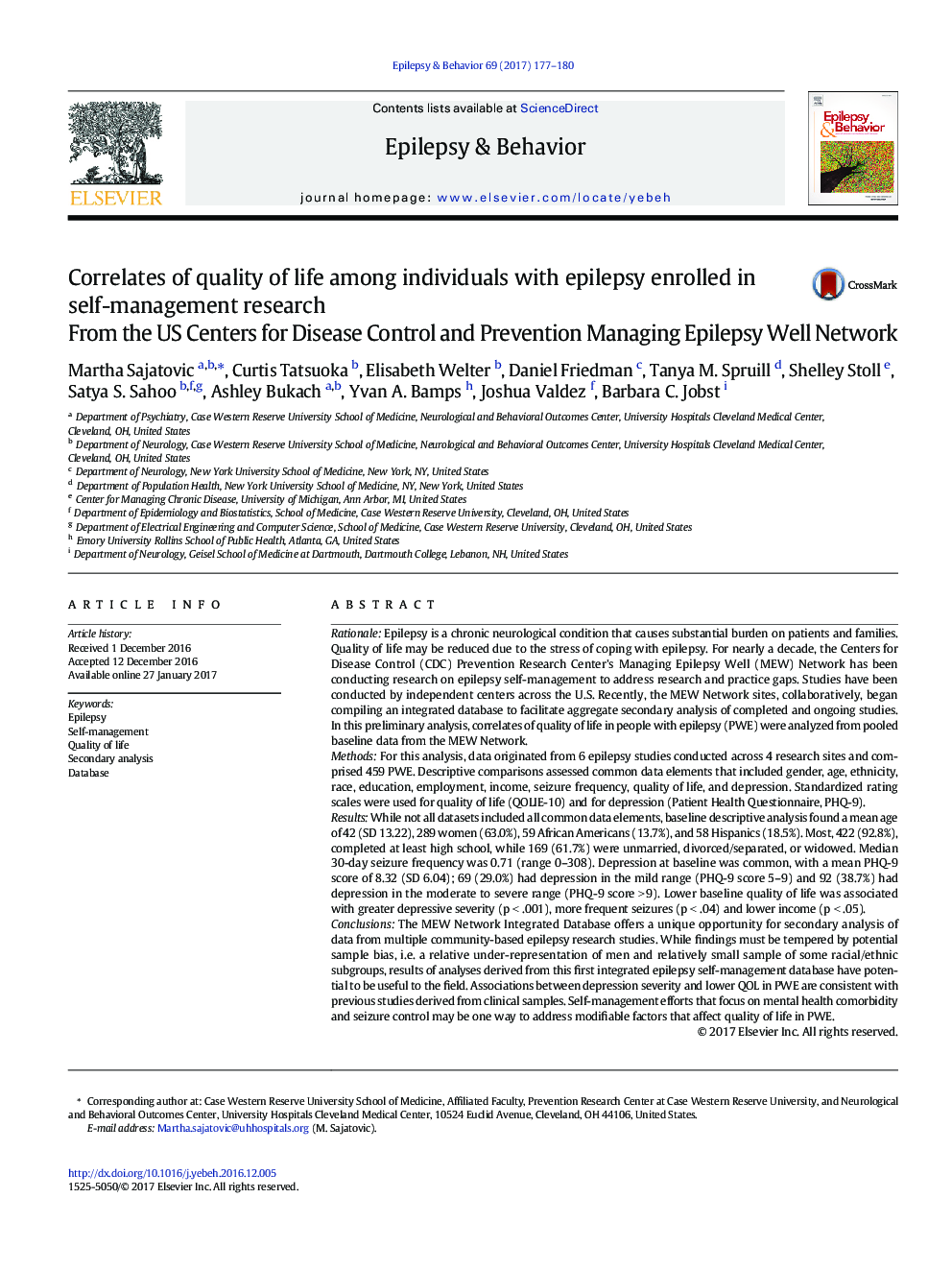| کد مقاله | کد نشریه | سال انتشار | مقاله انگلیسی | نسخه تمام متن |
|---|---|---|---|---|
| 5628425 | 1579823 | 2017 | 4 صفحه PDF | دانلود رایگان |
- Quality of life is often impaired among people with epilepsy.
- Pooled analysis from the Managing Epilepsy Well Network assessed quality of life correlates.
- Quality of life in epilepsy correlates with social and comorbidity variables.
RationaleEpilepsy is a chronic neurological condition that causes substantial burden on patients and families. Quality of life may be reduced due to the stress of coping with epilepsy. For nearly a decade, the Centers for Disease Control (CDC) Prevention Research Center's Managing Epilepsy Well (MEW) Network has been conducting research on epilepsy self-management to address research and practice gaps. Studies have been conducted by independent centers across the U.S. Recently, the MEW Network sites, collaboratively, began compiling an integrated database to facilitate aggregate secondary analysis of completed and ongoing studies. In this preliminary analysis, correlates of quality of life in people with epilepsy (PWE) were analyzed from pooled baseline data from the MEW Network.MethodsFor this analysis, data originated from 6 epilepsy studies conducted across 4 research sites and comprised 459 PWE. Descriptive comparisons assessed common data elements that included gender, age, ethnicity, race, education, employment, income, seizure frequency, quality of life, and depression. Standardized rating scales were used for quality of life (QOLIE-10) and for depression (Patient Health Questionnaire, PHQ-9).ResultsWhile not all datasets included all common data elements, baseline descriptive analysis found a mean age of 42 (SD 13.22), 289 women (63.0%), 59 African Americans (13.7%), and 58 Hispanics (18.5%). Most, 422 (92.8%), completed at least high school, while 169 (61.7%) were unmarried, divorced/separated, or widowed. Median 30-day seizure frequency was 0.71 (range 0-308). Depression at baseline was common, with a mean PHQ-9 score of 8.32 (SD 6.04); 69 (29.0%) had depression in the mild range (PHQ-9 score 5-9) and 92 (38.7%) had depression in the moderate to severe range (PHQ-9 score > 9). Lower baseline quality of life was associated with greater depressive severity (p < .001), more frequent seizures (p < .04) and lower income (p < .05).ConclusionsThe MEW Network Integrated Database offers a unique opportunity for secondary analysis of data from multiple community-based epilepsy research studies. While findings must be tempered by potential sample bias, i.e. a relative under-representation of men and relatively small sample of some racial/ethnic subgroups, results of analyses derived from this first integrated epilepsy self-management database have potential to be useful to the field. Associations between depression severity and lower QOL in PWE are consistent with previous studies derived from clinical samples. Self-management efforts that focus on mental health comorbidity and seizure control may be one way to address modifiable factors that affect quality of life in PWE.
Journal: Epilepsy & Behavior - Volume 69, April 2017, Pages 177-180
